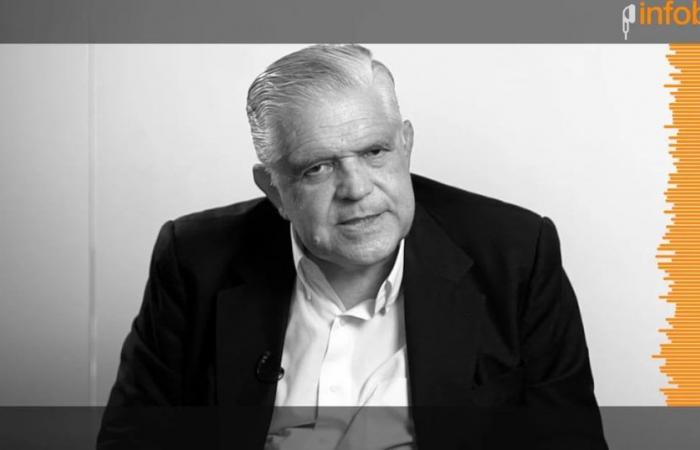For the national deputy Ricardo Lopez Murphy, the final approval of the Base Law and the fiscal package in Congress will represent for the Government the possibility of starting a new phase. In this framework, he stated that the president Javier Milei will have the opportunity “to emphasize management, which has many deficits,” and he assured: “I would release the clamp now”.
“The stocks are put in place to repress the real value of the dollar. We must abandon artificiality. The artificiality of the pension regime, because you cannot continue contributing for 30 years to be retired for 35 years; “We must eliminate the artificiality of the size of the State,” the legislator told the journalist. Marcelo Longobardi in Radio Rivadavia.
According to the economist, in this new stage the Executive must present the budget project where “the monetary program, the financial program and what exchange rate regime we are going to adopt are made explicit.” “One could approximate, based on the recent IMF report, that it could resemble the regime of Peru and Uruguay, and it seems like a logical question to me. But that system does not resist the trap”he added.
“I would release the trap now, we must realistically face the conditions and requirements so that Argentina has the capacity to insert itself into the world. Inevitably, this implies a current account surplus, after interest, services, of a significant magnitude, because debt must be repaid, and interest is very expensive, and because we have to accumulate reserves,” he concluded.
In turn, he maintained: “If we try to live with a current account deficit, getting into debt, as we have done many times, that always ends badly. Why don’t we go the other way? For having slack. The key to Argentine development is that we grow in exports, investments, and formal private employment. What reforms are we doing? Change control prevents going there”.
In recent days, several economists have spoken out against the promise Milei made during the electoral campaign to eliminate exchange restrictions. One of them, Carlos Melconian, was decisive and said that “it is unsustainable.”
On the other hand, the former minister Sunday Cavallo stated in a recent publication that the Government is not in a position to completely eliminate the dollar stocks during the coming months to achieve exchange rate unification, although he stressed that he is not willing to grant a significant devaluation of the weight. On the other hand, the economist pointed out that it is a coin competition which the President imagines will be delayed, at least, until 2025.
In this context, López Murphy criticized the idea held by both politicians and economists that Argentina’s reality is different from that of the rest of the countries in the region. “It seems absurd to me; if Brazil, Chile, Uruguay, and other countries do not have restrictions, why do they have restrictions?”Why do we have to function like North Korea, Venezuela or Cuba? “Give me explanations,” he said.
“If you consider that the restrictions are not reasonable, what you have to do is take very clear steps on how to dismantle a system that is pathological and sick, the heart of the Kirchnerist idea,” he added.
The opposition deputy will participate today in the session where the ruling party will accept many of the modifications that were made in the Senate to approve the package of laws. Given the lack of consensus, the Government had to exclude Aerolíneas Argentinas, Correo and RTA from the privatizations and, with the help of the dialogue blocks, will insist on the reversal of the Income Tax and the increase in the Personal Assets floor.
The session will last at least 12 hours. That was what the dialogue blocs that met with the government calculated yesterday afternoon to bring a common position to the parliamentary work meeting. The objective is to compress the debate as much as possible, that is why Both issues will be discussed together and then voted on separately.






